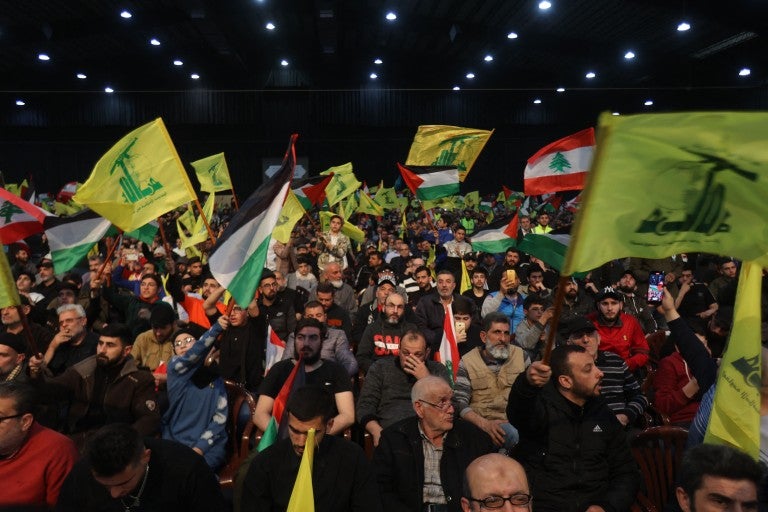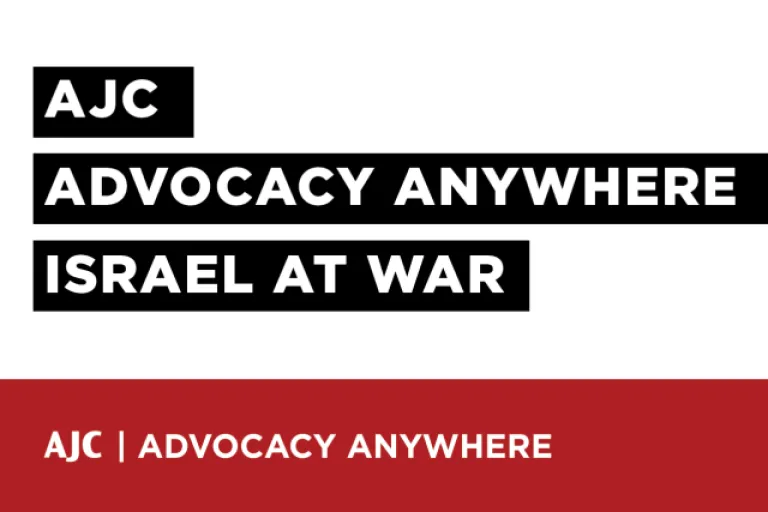June 6, 2017 — Washington, D.C.
Addressing the AJC Global Forum, Gilad Erdan, Israel’s Minister of Public Security and Strategic Affairs, called for an international alliance of Israel, moderate Arab states, the U.S., Europe, “and all likeminded countries” to create “an international alliance to fight terror.”
Noting that Israel is in the forefront of the battle against terrorism because its citizens have been its victims for so long, he pointed out that many other countries around the world, now subject to terror attacks as well, “have come to realize that it is not just Israel’s problem,” and that they could profit from Israel’s experience. “Tragedy and heartbreaking incidents have made people realize that terror is terror is terror,” said Erdan.
“We are honored that Minister Erdan, on this all-important date in the history of Israel, the 50th anniversary of Israel's war of self-defense, which has come to be known as the Six-Day War, came to Washington to be with AJC,” said AJC CEO David Harris. “His insightful perspectives on Israel’s strategic challenges, especially the fight against terror, are instructive, and, as he said, many countries around the world are now recognizing as very valuable.”
Erdan said that while his grandparents’ generation had to fight for Israel’s existence, and his parents’ generation had to overcome the hostility of Israel’s Arab neighbors, the threat to Israelis today is terror, especially of the “lone wolf” variety.
The minister, whose cabinet portfolio gives him the responsibility for responding to terrorism, outlined three challenges that Israel has made some progress in meeting: online incitement—what he called the “crowd-sourcing” of terror; the need to outlaw extremist organizations; and uncovering and drying up funding for these groups.
“Social media companies must take responsibility. They can no longer ignore the misuse of their platforms by terrorists,” said Erdan. Holding up a cell phone, he said, “terror has gone viral.” The technology “has become their number one weapon. They spread content online that both inspires and instructs potential terrorists.”
But he cautioned that no one country can deal effectively with these problems because they all have an international dimension—social media crosses borders, a movement might be banned in one country and not in another, and international sources of funding are notoriously difficult to trace.
Therefore, “the democracies of the world must take action” together, said Erdan, who also indicated that he planned to discuss the idea for an international anti-terror effort at a meeting scheduled with U.S. Homeland Security Kelly. Erdan called on the international community to “recognize once and for all that the world’s number one sponsor of terror is Iran.” He also said that “when you delegitimize a country or culture, you legitimize violence against it,” and thus the denial of Israel’s right to exist aids and abets terrorism aimed at the Jewish state.
“The way to counter the campaign of lies is to spread the truth about Israel,” said Erdan, who praised AJC for being “a very important part of this effort.”
And he called on the U.S. to cut off funding for the Palestinian Authority until it stops paying salaries to terrorists. “When the Palestinian leadership will choose dialogue over delegitimization and peace over hate,” he concluded, “they will find us a willing partner ready to make compromises for peace.”
This year's AJC Global Forum, taking place June 4-6, in Washington, D.C., is the advocacy organization’s signature annual event, bringing together more than 2,500 participants from across the United States and 70 countries around the world. AJC was the first American Jewish organization to establish a full-time office in Israel, nearly 60 years ago.


